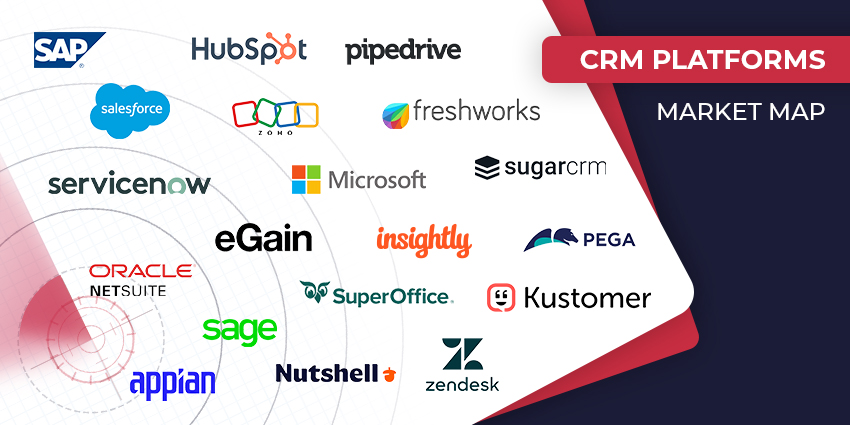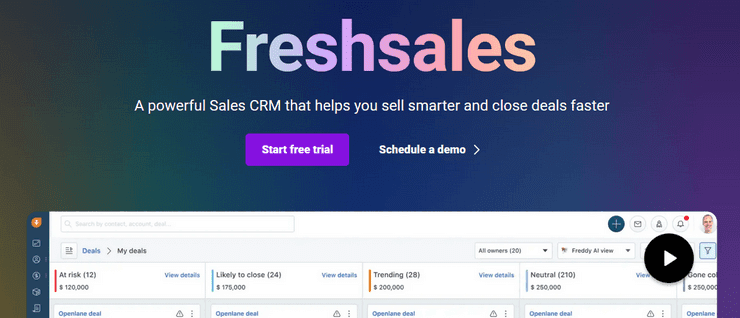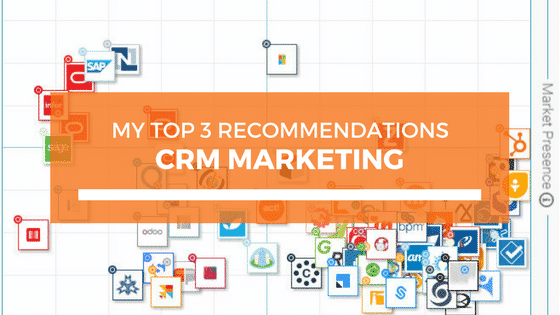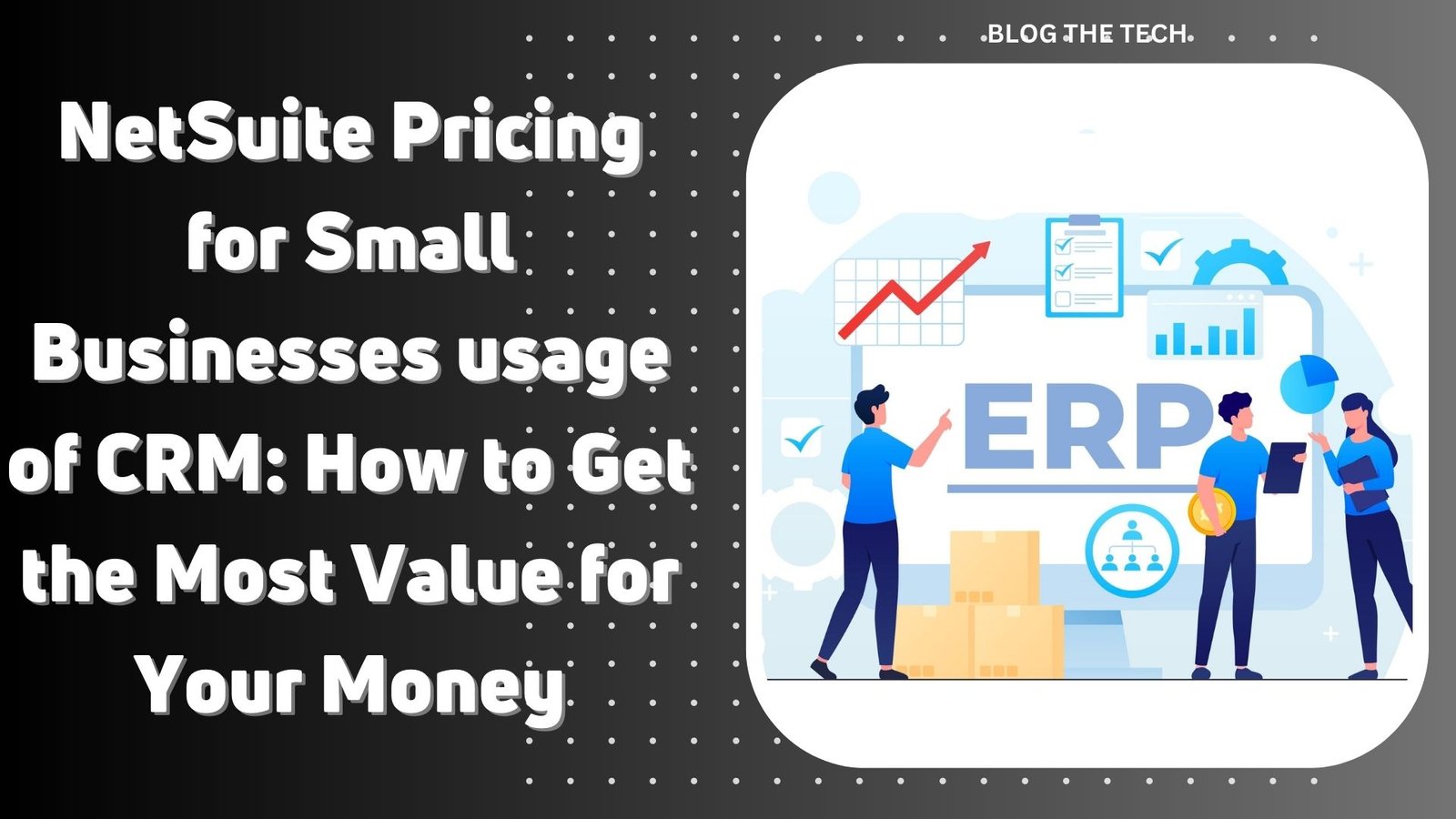
Unlocking Growth: Your Comprehensive Guide to CRM Marketing Platforms
Navigate the world of CRM marketing platforms and discover how they can revolutionize your business. This comprehensive guide provides an in-depth look at the benefits, features, and selection process to help you make informed decisions and drive sustainable growth.
What is a CRM Marketing Platform?
At its core, a CRM (Customer Relationship Management) marketing platform is a powerful tool designed to streamline and optimize your interactions with customers and potential customers. It’s not just about storing contact information; it’s a centralized hub that allows you to manage leads, track customer journeys, personalize marketing campaigns, and analyze performance, all in one place. Think of it as the central nervous system of your marketing efforts.
A CRM marketing platform typically integrates sales, marketing, and customer service functions, allowing for a seamless flow of information and a unified view of each customer. This integration is crucial for delivering consistent and personalized experiences across all touchpoints, from initial website visits to post-purchase support.
Unlike a simple contact management system, a CRM platform offers robust features like lead scoring, marketing automation, email marketing integration, and detailed analytics. These features empower businesses to nurture leads, segment audiences, and measure the effectiveness of their campaigns with precision. The goal is simple: to build stronger customer relationships, increase sales, and drive business growth.
Key Benefits of Implementing a CRM Marketing Platform
The advantages of adopting a CRM marketing platform are numerous and can significantly impact your bottom line. Let’s delve into some of the most significant benefits:
Improved Customer Relationships
At the heart of any successful business is a strong customer relationship. A CRM platform provides the tools to understand your customers on a deeper level. By tracking their interactions, preferences, and purchase history, you can tailor your communications and offers to their specific needs. This personalized approach fosters loyalty and strengthens the bond between your brand and your customers.
Imagine being able to anticipate your customer’s needs before they even express them. CRM platforms make this a reality by providing insights into their behavior and preferences. This allows you to proactively offer relevant products or services, creating a positive and memorable customer experience.
Enhanced Marketing Automation
Marketing automation is a game-changer for businesses of all sizes. CRM platforms automate repetitive tasks, freeing up your marketing team to focus on more strategic initiatives. This includes automating email campaigns, social media posting, lead nurturing workflows, and more.
Automated workflows ensure that your leads receive timely and relevant communications, guiding them through the sales funnel. This not only saves time but also improves lead conversion rates. For instance, you can set up automated email sequences that nurture leads based on their behavior, such as downloading a whitepaper or visiting a specific webpage.
Increased Sales Productivity
CRM platforms streamline the sales process by providing sales teams with a centralized view of all customer interactions and opportunities. This includes contact information, lead status, sales pipeline, and past communications. This allows sales representatives to quickly access the information they need to close deals and provide excellent customer service.
CRM systems often integrate with sales tools like email clients and phone systems, further enhancing productivity. Sales representatives can log calls, send emails, and update lead information directly from the CRM, eliminating the need to switch between multiple applications.
Better Data Analysis and Reporting
Data is the lifeblood of any successful marketing strategy. CRM platforms provide powerful analytics and reporting capabilities, allowing you to track key performance indicators (KPIs) and measure the effectiveness of your marketing efforts. You can gain insights into your customer behavior, campaign performance, and sales pipeline, which is crucial for making informed decisions and optimizing your strategies.
CRM platforms offer customizable dashboards and reports that provide a clear overview of your marketing performance. You can track metrics like lead generation, conversion rates, customer lifetime value, and return on investment (ROI). This data-driven approach allows you to identify areas for improvement and make data-backed decisions to improve your marketing campaigns.
Improved Collaboration and Communication
CRM platforms foster collaboration and communication across different departments, such as sales, marketing, and customer service. By providing a centralized platform for all customer-related information, CRM systems ensure that everyone is on the same page and has access to the same information.
This improved collaboration leads to better customer service, more efficient sales processes, and more effective marketing campaigns. For instance, sales reps can easily see the marketing materials a lead has engaged with, while customer service reps can access a customer’s purchase history and previous support interactions.
Key Features to Look for in a CRM Marketing Platform
The specific features you need in a CRM marketing platform will depend on your business needs and goals. However, some core features are essential for any successful CRM implementation:
Contact Management
This is the foundation of any CRM platform. It allows you to store and organize contact information, including names, email addresses, phone numbers, and other relevant details. Good contact management allows you to segment and target your audience effectively.
Lead Management
Lead management features help you track and nurture leads through the sales funnel. This includes lead scoring, lead assignment, and automated workflows that help you convert leads into customers. Lead management is crucial for maximizing your conversion rates.
Marketing Automation
As mentioned earlier, marketing automation is a key feature. It allows you to automate repetitive marketing tasks, such as email campaigns, social media posting, and lead nurturing workflows. This saves time and improves efficiency.
Email Marketing Integration
The ability to integrate with email marketing platforms is essential. This allows you to send targeted email campaigns, track email performance, and personalize your communications. Email marketing is still a powerful tool for engaging with customers.
Sales Automation
Sales automation features help you streamline the sales process. This includes features like sales pipeline management, deal tracking, and automated sales workflows. Sales automation increases sales productivity and helps close more deals.
Reporting and Analytics
Robust reporting and analytics capabilities are essential for measuring the effectiveness of your marketing efforts. Look for a platform that provides customizable dashboards, detailed reports, and key performance indicators (KPIs) tracking.
Integration with Other Tools
The ability to integrate with other tools, such as social media platforms, e-commerce platforms, and other marketing tools, is crucial for a seamless workflow. Integration allows you to streamline your processes and gain a holistic view of your customer data.
Mobile Accessibility
In today’s mobile-first world, it’s important to have a CRM platform that is accessible on mobile devices. This allows you to manage your customer data and sales activities on the go.
Customer Service Integration
Integrating your CRM with customer service tools can improve customer satisfaction and provide a more comprehensive customer experience. This allows your customer service representatives to access customer data and provide personalized support.
Choosing the Right CRM Marketing Platform: A Step-by-Step Guide
Selecting the right CRM marketing platform can be a daunting task. Here’s a step-by-step guide to help you navigate the process:
1. Define Your Needs and Goals
Before you start evaluating platforms, take the time to define your specific needs and goals. What are you hoping to achieve with a CRM? What are the biggest challenges you’re facing in your marketing and sales efforts? Identifying your needs will help you narrow down your options and choose a platform that aligns with your business objectives.
2. Assess Your Budget
CRM platforms vary widely in price, from free versions to enterprise-level solutions. Determine your budget before you start shopping to ensure you’re only considering platforms that are within your financial reach. Consider the total cost of ownership, including the platform’s subscription fees, implementation costs, and ongoing maintenance expenses.
3. Research Available Platforms
Once you have a clear understanding of your needs and budget, it’s time to research the available platforms. Read reviews, compare features, and consider the platform’s reputation and customer support. Some popular CRM marketing platforms include HubSpot, Salesforce, Zoho CRM, and ActiveCampaign. Each has its strengths and weaknesses, so it’s important to find the one that best fits your needs.
4. Prioritize Essential Features
Based on your business needs, identify the essential features that you need in a CRM platform. Make a list of must-have features, such as contact management, lead management, marketing automation, email marketing integration, sales automation, reporting and analytics, and integration with other tools.
5. Consider Scalability
Choose a platform that can scale with your business. As your business grows, you’ll need a CRM platform that can handle more data, more users, and more complex workflows. Look for a platform that offers flexible pricing plans and the ability to add features as needed.
6. Evaluate Integrations
Consider the integrations that the platform offers. Does it integrate with your existing tools and systems, such as your website, e-commerce platform, email marketing platform, and social media platforms? Seamless integration will streamline your workflow and save you time.
7. Assess User-Friendliness
The platform should be easy to use and navigate. Consider the user interface, the ease of setup, and the availability of training and support. A user-friendly platform will increase adoption rates and ensure that your team can effectively use the CRM.
8. Test Drive the Platform
Most CRM platforms offer free trials or demos. Take advantage of these opportunities to test drive the platform and see how it works in practice. This will give you a better understanding of its features and functionality and help you determine if it’s the right fit for your business.
9. Check for Customer Support and Training
Make sure the platform provides adequate customer support and training resources. Look for platforms that offer online documentation, tutorials, and responsive customer support. This will help you get up and running quickly and troubleshoot any issues that may arise.
10. Implement and Train Your Team
Once you’ve selected a platform, it’s time to implement it and train your team. Develop a detailed implementation plan and train your team on how to use the platform effectively. Provide ongoing support and training to ensure that your team can maximize the platform’s benefits.
Popular CRM Marketing Platforms: A Comparative Overview
The market is saturated with CRM marketing platforms, each offering a unique set of features and benefits. Let’s take a look at some of the most popular options:
HubSpot CRM
HubSpot is a popular all-in-one CRM platform known for its user-friendly interface and comprehensive features. It offers a free version with basic CRM functionality and paid plans with advanced features like marketing automation, sales tools, and customer service software. HubSpot is a great choice for businesses of all sizes, particularly those looking for an integrated marketing and sales solution.
- Pros: User-friendly interface, comprehensive features, strong marketing automation, excellent for inbound marketing.
- Cons: Can be expensive for advanced features, may have a learning curve for complex workflows.
Salesforce Sales Cloud
Salesforce Sales Cloud is a leading CRM platform designed for larger enterprises. It offers a wide range of features, including sales automation, lead management, and advanced analytics. Salesforce is known for its scalability and customization options, making it a good choice for businesses with complex sales processes and needs.
- Pros: Highly customizable, scalable, powerful reporting and analytics, extensive integration options.
- Cons: Can be complex to set up and manage, expensive, may require dedicated IT support.
Zoho CRM
Zoho CRM is a versatile and affordable CRM platform suitable for small and medium-sized businesses. It offers a wide range of features, including sales automation, marketing automation, and customer service tools. Zoho CRM is known for its ease of use and affordability, making it a popular choice for businesses on a budget.
- Pros: Affordable, easy to use, good feature set for the price, strong integration with other Zoho apps.
- Cons: Marketing automation features may be less robust than competitors, some advanced features require higher-tier plans.
ActiveCampaign
ActiveCampaign is a powerful marketing automation platform with CRM capabilities. It offers advanced automation features, email marketing tools, and sales automation. ActiveCampaign is a good choice for businesses that prioritize marketing automation and want to nurture leads effectively.
- Pros: Strong marketing automation, excellent email marketing features, user-friendly interface, good value for the price.
- Cons: CRM features may be less comprehensive than dedicated CRM platforms, limited free plan.
Pipedrive
Pipedrive is a sales-focused CRM platform designed to help sales teams manage their leads and close deals. It offers a visual sales pipeline, sales automation features, and reporting and analytics. Pipedrive is a good choice for businesses that want a simple and intuitive CRM platform focused on sales.
- Pros: Easy to use, visual sales pipeline, sales-focused features, affordable.
- Cons: Limited marketing automation features, may not be suitable for businesses with complex marketing needs.
Integrating Your CRM Marketing Platform with Other Tools
To maximize the effectiveness of your CRM marketing platform, it’s crucial to integrate it with other tools and systems you use. Integration allows you to create a seamless workflow and gain a holistic view of your customer data. Here are some key integrations to consider:
Email Marketing Platforms
Integrating your CRM with your email marketing platform allows you to send targeted email campaigns, track email performance, and personalize your communications. This integration enables you to segment your audience based on their behavior and preferences and deliver highly relevant content.
Social Media Platforms
Integrating your CRM with your social media platforms allows you to track social media engagement, monitor brand mentions, and manage your social media presence from within your CRM. This integration enables you to engage with your customers on social media and provide personalized support.
E-commerce Platforms
If you have an e-commerce business, integrating your CRM with your e-commerce platform is essential. This integration allows you to track customer purchase history, personalize product recommendations, and automate marketing campaigns based on customer behavior. This will help improve sales and enhance customer loyalty.
Website Analytics
Integrating your CRM with your website analytics tools allows you to track website visitor behavior, identify leads, and personalize website content. This integration enables you to gain insights into your customer’s journey and optimize your website for conversions.
Accounting Software
Integrating your CRM with your accounting software allows you to track customer payments, manage invoices, and gain a complete view of your customer’s financial data. This will help improve your financial management and improve your customer service.
Best Practices for CRM Marketing Platform Implementation
Implementing a CRM marketing platform is a major undertaking, but following these best practices will help you ensure a successful implementation:
1. Data Migration and Cleansing
Before you launch your CRM, take the time to migrate your existing data into the new platform. Cleanse your data to remove duplicates, correct errors, and ensure data accuracy. This will ensure that your CRM data is reliable and useful.
2. User Training and Adoption
Train your team on how to use the CRM platform effectively. Provide ongoing support and training to ensure that your team can maximize the platform’s benefits. Encourage user adoption by highlighting the benefits of the CRM and providing regular feedback.
3. Customization and Personalization
Customize the CRM platform to meet your specific business needs. Personalize your workflows, reports, and dashboards to ensure that the platform is tailored to your needs. This will help improve user adoption and make the platform more effective.
4. Continuous Optimization and Improvement
Regularly review your CRM data and performance. Identify areas for improvement and make adjustments to your workflows and campaigns. Continuously optimize your CRM to ensure that it’s meeting your needs and delivering the desired results.
5. Security and Data Privacy
Prioritize the security and privacy of your customer data. Implement security measures to protect your data from unauthorized access and ensure compliance with data privacy regulations, such as GDPR and CCPA.
The Future of CRM Marketing Platforms
The CRM landscape is constantly evolving, and the future of CRM marketing platforms is likely to be even more exciting. Some key trends to watch include:
Artificial Intelligence (AI) and Machine Learning (ML)
AI and ML are already transforming CRM platforms. They can automate tasks, personalize customer experiences, and provide predictive insights. Expect to see even more AI-powered features in the future, such as automated lead scoring, personalized recommendations, and predictive analytics.
Hyper-Personalization
Customers expect personalized experiences, and CRM platforms will play a key role in delivering them. Expect to see more sophisticated personalization features, such as dynamic content, personalized product recommendations, and personalized email campaigns.
Increased Integration
CRM platforms will continue to integrate with other tools and systems, creating a more seamless workflow. Expect to see more integrations with social media platforms, e-commerce platforms, and other marketing tools.
Mobile-First Approach
Mobile accessibility will continue to be a priority, with CRM platforms offering more mobile-friendly features and functionalities. Expect to see more mobile apps and mobile-optimized interfaces.
Focus on Customer Experience
CRM platforms will increasingly focus on customer experience. Expect to see more features that help businesses improve customer satisfaction, build customer loyalty, and provide personalized customer support.
Conclusion
A CRM marketing platform is a powerful tool that can transform your marketing and sales efforts. By choosing the right platform, implementing it effectively, and following best practices, you can build stronger customer relationships, increase sales, and drive sustainable growth. By understanding the key features, benefits, and future trends of CRM marketing platforms, you can position your business for success in today’s competitive marketplace. Embrace the power of CRM and unlock the full potential of your customer relationships.




